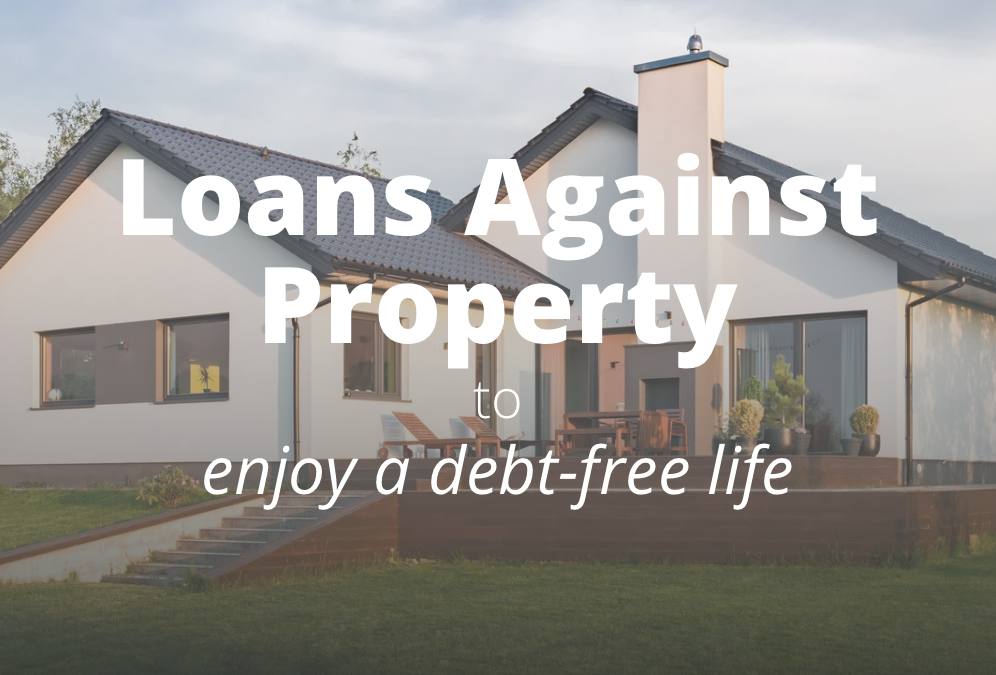
Property Loans
South Africa’s property market is as diverse as its landscape. One of the lesser-known financing options available to property owners is acquiring loans against unbonded property. The funds can be used for many different purposes, however most successful applicants use the money to fund business expansion. This FAQ article demystifies loans against unbonded property in South Africa and provides insights into what potential borrowers need to know.
Common Questions About Loans Against Property
1. What is an Unbonded Property?
An unbonded property refers to a property that is fully paid off and has no outstanding mortgage or home loan attached to it. In essence, it’s a property where the owner holds full financial rights without any debt obligations to a bank or financial institution.
2. How Does a Loan Against Unbonded Property Work?
Loans against unbonded property in South Africa operate much like a secured personal loan. The property acts as collateral against the borrowed amount. If the borrower defaults, the lending institution can claim the property to recover their funds.
3. What are the Benefits of Taking a Loan Against Unbonded Property?
- Higher Loan Amounts: Due to the property acting as collateral, lending institutions are often willing to offer larger loan amounts compared to unsecured loans.
- Flexible Repayment Terms: These loans often come with longer repayment durations, making monthly installments more manageable.
- Lower Interest Rates: With the loan secured against a tangible asset, there’s reduced risk for the lender, often resulting in comparatively lower interest rates.
4. Are there any Risks Involved?
Absolutely. The most significant risk is the potential loss of your property. If you default on the loan, the lender has the right to take ownership of the property to recover their funds. It’s crucial to evaluate your repayment capacity before opting for loans against unbonded property in South Africa.
5. How Do I Qualify for this Type of Loan?
While the specific criteria may vary among lenders, common requirements include:
- Ownership of an unbonded property in South Africa.
- Proof of steady income or employment to ensure repayment capability.
- A good credit history, though some lenders might offer loans to those with compromised credit at higher interest rates.
- Legal documentation proving ownership and verifying the property’s value.
6. How is the Loan Amount Determined?
The loan amount is typically based on the value of the property. Lenders may offer between 50% to 80% of the property’s value, though this percentage can vary. It’s always recommended to have your property professionally evaluated to know its market value.
7. Can I Take a Loan Against Commercial Property?
Yes, loans against unbonded property in South Africa are not restricted to residential properties. Many lenders also offer loans against commercial, industrial and agricultural properties, though the terms and conditions might differ.
8. What Happens if Property Values Decrease After I Take the Loan?
If the market value of your property drops after securing the loan, it won’t affect the loan amount you’ve already received. However, it could impact future borrowing against the property, as the loanable amount is based on current market value.
9. Are There Any Hidden Fees or Costs?
This largely depends on the lender. It’s vital to read the loan agreement carefully and clarify any terms that seem ambiguous. Ask about any processing fees, legal fees, valuation costs, or early repayment penalties.
10. How Does Repayment Work?
Repayment structures for loans against unbonded property in South Africa usually involve monthly installments, much like traditional home loans. These will include both the principal amount and the interest. Ensure you understand the interest rate, whether it’s fixed or variable, and other associated terms before finalizing.
Conclusion
Loans against unbonded property in South Africa offer an avenue for property owners to leverage their assets for financial needs. However, like any financial endeavor, it’s essential to approach with caution, thorough research, and informed decision-making.
Always consider consulting with a financial advisor or professional to ensure this financial option aligns with your goals and capability.

Property Loans
You want to use the sale proceeds from your sold property to help cover the costs of purchasing your new property. But property transfers can be complicated and it can take months before you see the money. But do not stress. You can bridge the financial gap when you have sold your home and need a cash advance on property sale proceeds with property bridging loans. But how does the property sale process work? Let us have a look.
Property Is Sold And Sales Agreement Signed
The first step is that the buyer and the seller must sign a written agreement. After the seller and buyer have signed the Agreement of Sale, other documents must still be signed at the office of the Conveyancer to comply with the formalities in order to affect the registration of the transfer. The buyer must also sign the bond documents at the office of the Conveyancer attending to the registration of the Purchaser’s bond. The Seller pays the costs of registering the bond and the costs of registering the transfer. Once the sales agreement is signed a property bridging loan can help you out financially while you are waiting on your money. This is also referred to as a property term loan or sellers advance loan.
Handed Over To Conveyancer
To ensure the continued existence of our excellent system of registration, and to protect the rights of the public, the law provides that only qualified Conveyancers having the necessary knowledge, skill, and attention to detail may attend to the transfer of property and related transactions. When all the checks have been made and all the procedures followed by the conveyancer, the new owner can be assured that his or her title to the property cannot be disputed. There are a lot of resources with helpful information that can guide you through the process and be assisted by the helpful staff.
All Suspensive Conditions Met
Selling a property can be a stressful time. While your home may be officially sold, there can be a long delay until you finally receive the proceeds from the sale. Your cash flow may be tight while you wait for the proceeds to come through and you need to pay the deposit on your next property purchase. With a Sellers Advance, you can have access to your funds as soon as your home has been sold. This means that once the purchase price has been secured by your buyer, a sellers proceeds loan may be able to offer you up to 75% of your total nett proceeds (after deducting the bond amount and all costs associated with the sale). Your agreement with the lender will determine the period of your bridging finance repayments. You start to repay the bridge loan when you get the funds, this will include interest and the fees.
Financial Benefits of a Property Sale Loan
There are multiple benefits that come with taking out a property loan. You will have quick access to your sale proceeds. The loan will allow you to pay for your transfer fees, rates, taxes, and conveyancing fees. You can use the money for your new property. If you are an estate agent you can get a commission advance while you are waiting for your money to get transferred!
Property Loans
How do I reduce my monthly bond repayments?
Are your bond repayments too high? Tenants not paying rent? Vacancies increasing? Sounds like you need to
reduce your monthly bond repayments. It is possible to reduce your bond repayments by up to 32% per month and free up cash to get your business cash flow out of the red.
This is how – Interest Only Bonds
Your bond repayment is made up of two main components: capital and interest. The capital amount is the loan amount you took out with your financial institution.
Interest is calculated as a percentage of a loan (or deposit) balance, paid to the lender periodically for the privilege of using their money (The Balance)
So, if you remove the repayment of the capital amount and only pay interest, then it is possible to reduce your
bond repayments by as much as 32%. The reduction in repayments is dependent on the interest rate you are currently paying your bank. The good news is, the interest rate is at an all-time low as a result of the economic turmoil caused by the coronavirus pandemic. Bad for investors, relief for property owners. Back to interest only bonds. The capital amount can be paid back at the end of the loan term.
Here is an typical example (subject to lenders conditions) that outlines the potential cashflow saving:
Traditional Capital and Interest Repayment Model
Bond R 50 million
Term 10 years
Interest Prime plus 1 % ( 11.25 % )
Repayment R 695 844 pm
Interest Only Model
Bond R 50 million
Term 5 years ( plus 5 years if account handled well)
Interest Prime plus 1 % ( 11.25 % )
Repayment R 468 750 pm
This equates to a 32% improvement in cash flow – R 227 094 pm x 12 = R 2 725 128 pa. Capital Repayment – R 50 million at year 5, or rollover if the lenders is happy to refinance.
Types of properties
The ideal types of properties for this financing solution are income-producing commercial, industrial or
residential properties (blocks of flats, hotels, student accommodation), valued at between R 20 million and
R80 million.
If you have a property valued at more then R 80 mill, it is possible to structure the funding in an alternative
manner. The property must have been owned for at least 2 years and have some equity available.
Risks
As a borrower, your risk is reduced because cashflow is improved. With a positive cash-flow you have
funds to buffer your business against any unforeseen circumstances, such as COVID, other natural or
man-made disasters.
How may I use the cash saved?
The cash you will have freed up can be used for other investments or as the property owner requires. The borrower
must, however, remember that at year three to five, the capital has to be paid back. This can come from
the savings made in cashflow, from bank loans, other businesses or even the Interest Only Bond holder,
could refinance or roll-over the loan.
How long does it take to set up the Interest Only Bond?
The lenders need all supporting documents to prepare a submission. The proposal is submitted to the credit committee for assessment. If all in order, then a valuation of the property is done and the final term sheet is presented to you. This normally takes 2 to 3 weeks, measured from when ALL the requested supporting documents have been received.
What are the costs?
The interest rates charged are market related. Rates from prime plus 1% to prime plus 3% are available. This is risk dependent. The current bond on the property would need to be cancelled and a new bond registered. There may be bond cancellation costs and there will be bond registration costs. There are also the normal administration and raising-fee costs.
- Main Advantages
Companies wanting to grow their property portfolios can use this finance facility to purchase more
property.
- If there is equity in the property, it is possible to release this equity.
- Cash-flow is improved. Reduction in monthly payments of up to 32 % are possible.
- Reduced interest rates. Some property owners are paying rates in excess of prime plus 5 %. There are
savings to be made using these commercial bond facilities.
For more information visit https://nhfinance.co.za/interest-only-bonds/


